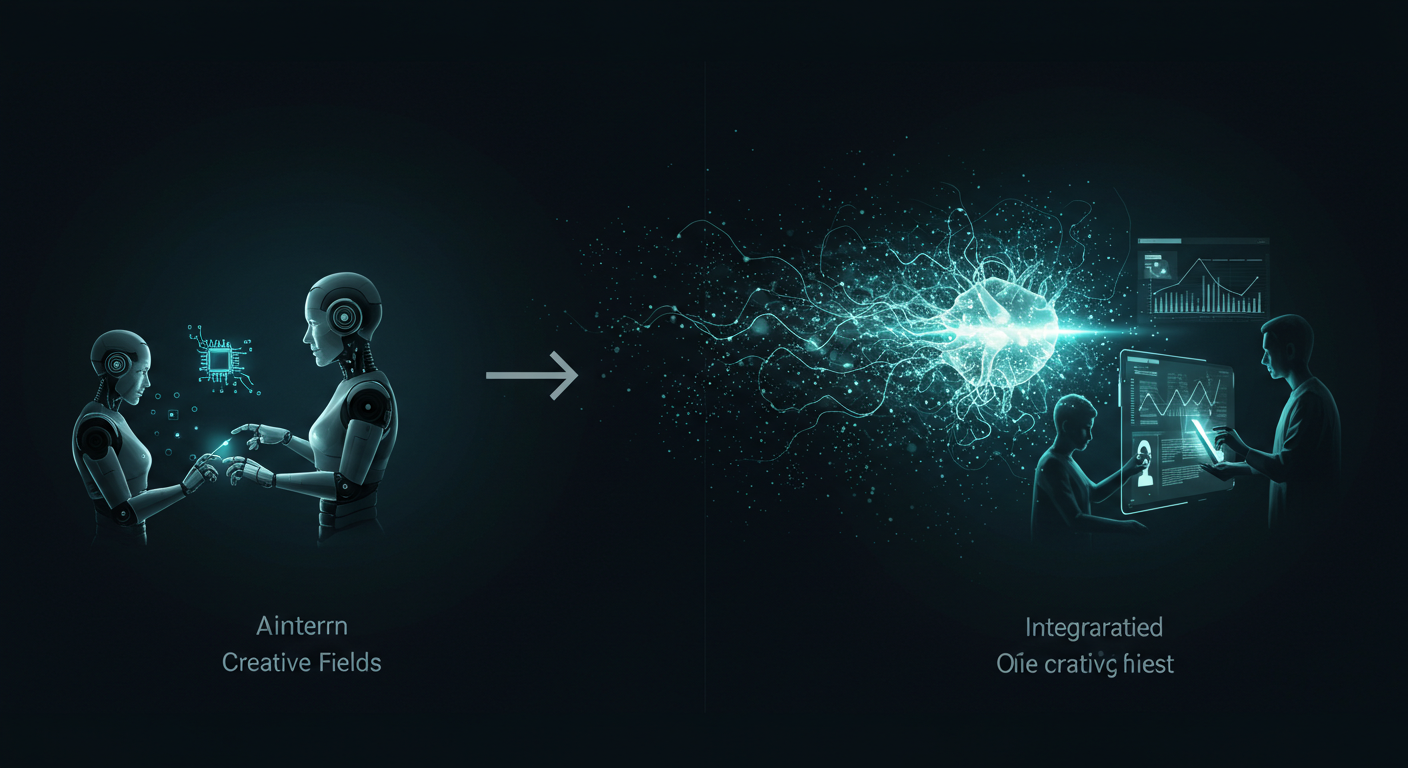Not long ago, AI functioned more as an oblique intern. It filled in when humans were unavailable to perform basic tasks. AI may have helped tidy up a spreadsheet, summarized transcripts, transcribed audio, and written emails.
However, softly and quickly, this intern began to raise more serious questions. It can now generate creative thoughts, recommend marketing directions, refine strategy decks, and even assist in winning pitches. AI is no longer merely an assistant. It is beginning to resemble a creative collaborator, one with flawless memory, boundless stamina, and sometimes astonishing intuition.
The Role Has Changed, So Has the Relationship
At first, people viewed AI tools as useful because they saved time. They sped up marketing teams’ work, kept copywriters from facing blank pages, and helped planners sort through jumbled data.
But now something is different. Things that started out as automatic are now being done collaboratively.
Creative teams now use AI to:
- Quickly make prototypes of visual ideas.
- Develop large-scale content plans.
- Extract cultural information from vast amounts of data.
- Stimulate replies from customers and user processes.
- Even co-write pitch stories.
More importantly, they are not doing this to replace people; rather, they are doing it to enhance human capabilities.
From Execution to Thinking Partner
AI is becoming more and more like a thoughtful partner. This does not mean that the machine can think of new ideas on its own. Instead, it helps people think more clearly. AI frees up human teams to make stronger, smarter, and faster choices by handling the work of study, idea generation, and testing.
Consider these scenarios:
- A planner uses an AI tool to test how a new slogan might work with different groups of people.
- When a designer submits rough ideas, they immediately receive 20 plan options.
- An AI helper assists a pitch team in reviewing their story and identifying problems with logic or tone.
AI is not just helping to execute these tasks; it is also helping to guide them.
READ ALSO: Predictive shopping: how AI will shop before you think to ask
The New Creative Ladder
In the past, within agencies, interns started with small jobs and gradually worked their way up. They would pay attention, learn, contribute, and develop into creative thinkers, planners, and directors.
AI is making progress, but it is not intended to replace humans. It is here to transform the way people spend their time. We no longer have to spend hours looking for sources, redoing lines, or assembling decks. Instead, we can focus on more important things, like original thought, cultural relevance, and emotional intelligence.
But Let’s Be Clear: Strategy Still Needs Soul
AI is advancing quickly, but it still cannot:
- Read the room during a tense client meeting.
- Sense a change in culture before it makes the news.
- Discern if an idea is truly brave or merely for show.
Those remain human tasks. They will stay that way for a long time. This change truly signifies a rebalancing of the creative process. It points to a world where people do not just instruct the tools; they collaborate with them.
So, What Should Teams Do Now?
- Bring your creatives up to speed: Teach them prompt engineering as well as Photoshop.
- Form mixed-brain teams: Combine intuitive thinking with more analytical thinking, and provide them with AI to help them communicate effectively.
- Rethink junior roles: Consider what it means to be an “entry-level” marketer in a world where AI handles entry-level tasks.
- Develop comprehensive AI guidelines: These should address culture as a whole, including ethics, the appropriate use of these technologies, and the boundary between assistance and ownership.
Perhaps AI began its career as an intern. However, its original purpose has expanded. It now assists with concept pitching. It provides understanding. It transforms workflows. Plus, your team may discover they have a strategist on staff that never rests if they figure out how to collaborate with it rather than just rely on it.
ALSO WATCH: MARKETING EDGE ONTV







Comment
No comments found.